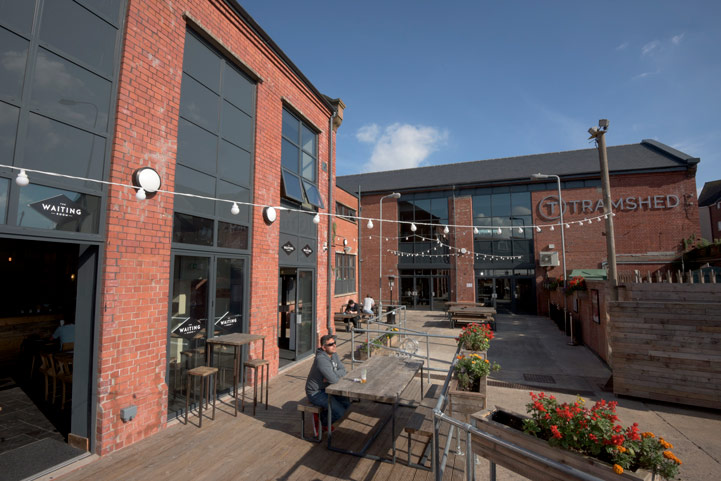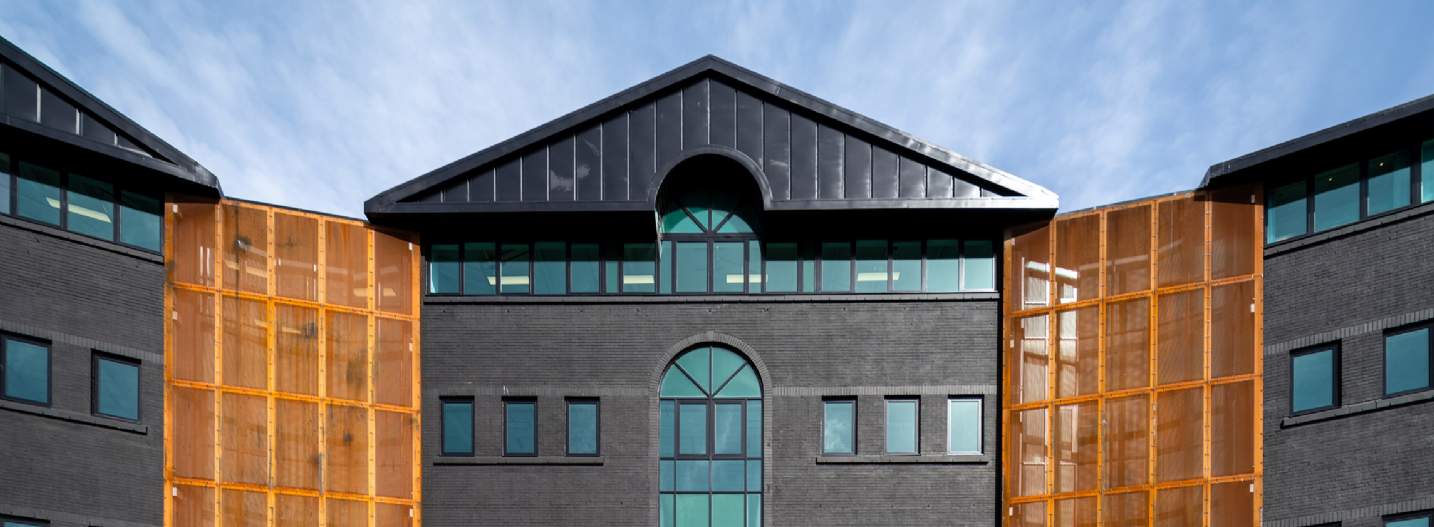In recent years, Cardiff has experienced a remarkable transformation, evolving into a hotbed of creativity and innovation
‘Public Services, Education & Health’ has been one of the key sectors in the UK regional office market over the past five years. Total take-up of 3.6m sq ft has accounted for 12% of demand in the regions, making it the second most active sector in the market.
In Cardiff, the sector has proven even more influential, recording 350,000 sq ft of take-up, which accounted for 19% of total take-up. This made it the most active sector on the market on a square footage basis between 2018 and 2022.
'Public Services, Education & Health' has been the most active sector over the last five years with 350,000 sq ft of take-up
Clare Bailey, Director, Commercial Research
Thanks to the continuing growth of regional tech, ‘TMT’ was the second most active sector, also accounting for 19% of demand. Finally, ‘Insurance & Financial Services’ took third place, recording 17% of market take-up.
Looking specifically at the number of transactions, ‘Public Services, Education & Health’ demand was spread across 79 transactions, which also made it the most active sector from a deal count perspective. 'TMT' was again in second place on this metric, with 'Business & Consumer Services ranking third with 58 completed transactions.
What has been driving this demand?
One of the key drivers of demand from the sector has been public service institutions relocating their office space. The 2021 ONS Business Register and Employment Survey found that 32% of the jobs in Cardiff were in the public sector. This was a higher proportion than any of the UK Big 6 office markets.
However, in light of the UK government's announcement to reduce the regional civil service relocation programme by 25%, this may serve to limit public sector demand moving forward. In H1 2023, public sector demand reduced to a 12% share, making it only the fourth most active sector. In terms of what this means for the wider market, it is likely to create space for growth in occupier demand amongst alternative sectors in the city.
Looking forward
One of the key potential growth sectors in Cardiff is ‘Arts and Entertainment’. According to Oxford Economics, the sector is predicted to be the second fastest-growing sector over the next ten years in terms of job growth in Cardiff (13%).
Employment in the 'Arts and Entertainment' sector is set to grow by 13% over the next ten years in Cardiff
Clare Bailey, Director, Commercial Research
This is likely to result in increased occupational office demand for ‘Arts and Entertainment’ companies over the coming years, with spaces such as Chapter and The Abacus already demonstrating that there is a growing market for cluster space for occupiers within the arts sector.
This may also pave the way for further tech growth within the city. We have started to see the beginnings of this transition with Tramshed partnering with Hodge Bank at 1 Central Square. This provides a clear example of a more traditional office occupier vacating a proportion of its premises to support the growth of tech startups and scaleups with city centre office space.
Cardiff's Creative Industries: Revitalising Old Buildings
In recent years, Cardiff has experienced a remarkable transformation, evolving from an industrial centre to a hotbed of creativity and innovation.
The city's creative industries encompass a diverse array of sectors, including film and television production, digital media, gaming, design, architecture, advertising, and music. This evolution has been driven by several factors, including government support, a skilled workforce, and a vibrant cultural scene. This has made Cardiff a magnet for creative talent, attracting 7,000 graduates to enrol in creative and media courses each year.
One question, however, is where exactly are these companies anchoring themselves?
Over the last few years, the city has seen a wide range of new build options become available, such as the bespoke office space at the £6 million waterfront development at Gloworks in Cardiff Bay alongside the BBC’s purpose-built Roath Lock drama village. The newest addition to the city is Cardiff’s creative destination, Central Square, has also attracted creative and TMT companies to Cardiff's prime office location. One of these is BBC Wales, whose HQ is now located at the Central Square development. This includes touchdown space for use by up-and-coming independent production companies.
Undoubtedly though, a unique aspect of Cardiff's creative revolution lies in the adaptive reuse of old buildings. The refurbishment market for offices has proved a success in recent years, with projects such as Coal House (43,000 sq ft) and Hodge House (157,000 sq ft) facilitating significant rental growth on what were previously Grade B buildings.
As the city underwent deindustrialisation, many historic structures were left vacant and abandoned. Rather than allowing these architectural gems to decay, visionary urban planners and entrepreneurs recognised the opportunity to transform them into creative spaces that would serve as incubators for innovation and self-expression.
The Cardiff Arcades Project is a well-known initiative that seeks to revitalise the city's historic arcades, promoting them as centres for creativity and culture. Through events, exhibitions, and collaborations with local artists and businesses, the project aims to celebrate and preserve the unique heritage of these arcades.
Revitalising old buildings ensures the preservation of Cardiff's cultural heritage, linking the past to the present. These structures often hold historical significance and offer a tangible connection to the city's roots. Recycling existing buildings reduces the demand for new construction, ultimately decreasing the environmental impact.
The character and charm of historical buildings inspire creative minds. The juxtaposition of modern creative enterprises within traditional settings fosters a unique and stimulating environment. By repurposing old buildings, Cardiff has stimulated economic growth. Creative industries contribute significantly to the city's economy through job creation, tourism, and increased property values.
Cardiff's transformation into a creative powerhouse showcases the potential of combining historical preservation with modern innovation. The revival of old buildings to house creative industries has not only given new purpose to these structures but has also enriched the city's culture, economy, and overall urban experience.
Developing cultural spaces in unusual places

Tramshed is a Grade II-listed tram depot that was redeveloped and opened to the public in October 2015
Cardiff's Creative Quarter stands as a testament to the city's commitment to preserving its historical architecture while nurturing a thriving creative community. By creatively reimagining and adapting old buildings, Cardiff has succeeded in fostering a unique and inspiring urban environment. This fusion of the past and present has contributed significantly to Cardiff's reputation as a vibrant, creative, and culturally rich city.
In the High Street area, several old buildings have been transformed into art studios and co-working creative offices. These spaces cater to artists, designers, and freelancers, providing them with conducive environments to work and collaborate. Other notable examples include Tramshed, a historic tram depot, which has been repurposed into a multifunctional venue that hosts concerts, art exhibitions, and creative workshops, with Tramshed Tech offering a co-working space and tech hub.
This is just one of four office spaces that Tramshed Tech offers across Wales, the latest being the significant expansion into One Central Square, which could set a precedent for further provision of this kind of space in traditional office buildings. Across their portfolio, Tramshed Tech now has 2,500 members across the tech, digital and creative sectors, including companies such as AMPLYFI and PureCyber. With a further two sites already in the pipeline, this is only set to increase Tramshed Tech's influence in the Welsh office sector moving forward.
